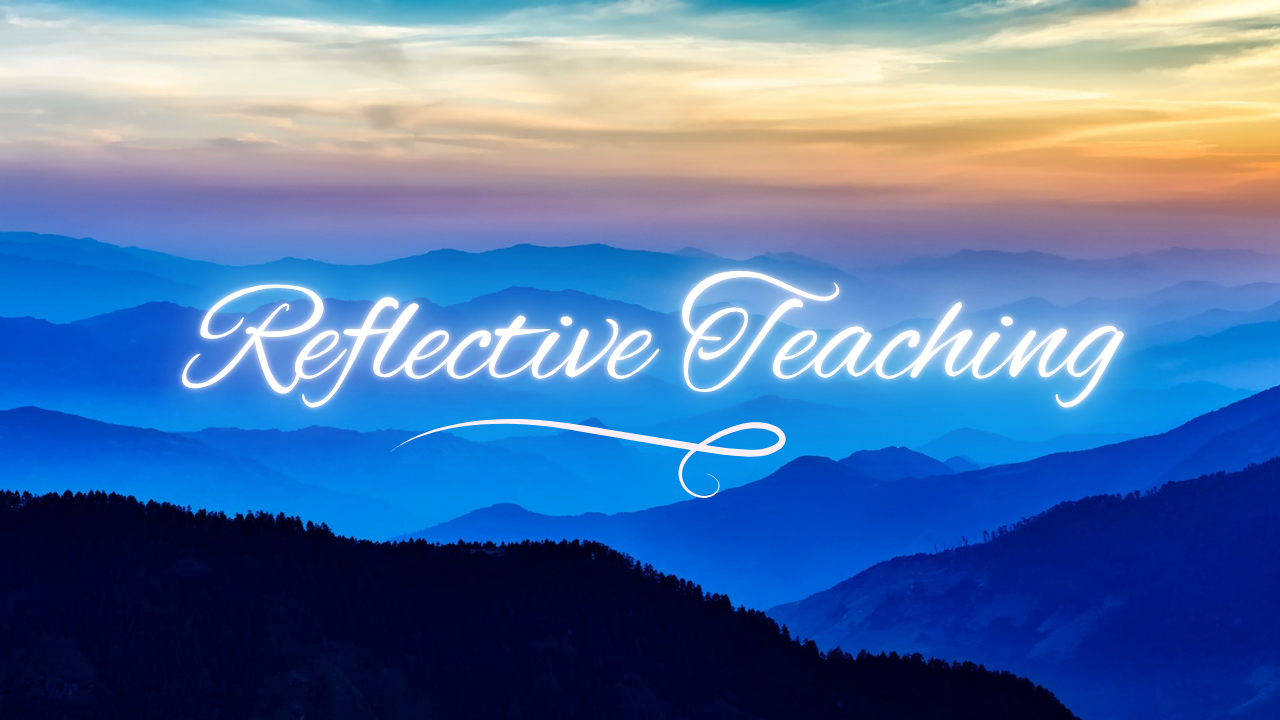
Can we talk for a second about what it really means to teach in higher ed?
I’m not just talking about loading content into a learning management system, grading papers, or posting announcements (although, bless it, all of that matters too). I’m talking about what happens when you pause long enough to think about how you’re showing up for your students. I’m talking about the difference between just getting through a course and truly facilitating learning.
That’s the heart of reflective teaching.
And it’s the soul work that often gets buried under emails, department meetings, and “just one more” paper to grade.
But what if you carved out a sacred space—just for you—to reflect on your facilitation each week?
What if you could see your growth, name your challenges, and notice your patterns over time?
That’s exactly why I created The Professor’s Week in Review, A Journal for Weekly Reflections on the Higher Ed Experience. One of my favorite prompts? It simply asks: “How well did you facilitate this week?”
What Is Reflective Teaching—and Why Does It Matter?
Reflective teaching is the practice of critically examining your own teaching methods, decisions, and interactions with students. According to the Poorvu Center at Yale, it “requires you to move beyond routine actions and engage in deliberate thinking about what works, what doesn’t, and why.”
It’s not just a buzzword or an accreditation checkbox. Reflective teaching is about real growth.
Whether you teach online, in-person, or somewhere in between, your teaching strategies, student responses, and even your energy shift throughout the semester. Without a structured way to capture those moments, you might miss the opportunities hiding in plain sight.
And let’s be transparent: many of us reflect reactively—when something goes wrong, when we’re preparing for an annual review, or when we’re up for tenure.
But real growth happens when reflection becomes the norm—not the exception.
Why Reflective Practice Is Especially Important in Higher Ed
In higher education, we’re often expected to be content experts and master teachers, without the day-to-day support that many K–12 educators receive. It’s easy to feel isolated in your teaching or unsure of how well you’re doing.
Reflective practice breaks that cycle. Here’s how:
– It allows you to notice and name what’s working—and why.
– It helps you adapt when strategies fall flat.
– It gives you a clearer picture of student engagement and comprehension.
– It provides emotional clarity on your own feelings of success—or inadequacy, and
– It builds a trail of evidence you can use when applying for grants, promotions, or even just peace of mind.
Why Journaling Works
Journaling is more than just writing down what happened. It’s about thinking about your thinking—a metacognitive move that fuels growth.
When you keep a teaching journal, you create a space to:
– Track patterns in student engagement and participation
– Notice how different groups respond to specific strategies
– Capture insights from online vs. in-person dynamics
– Express self-efficacy as you try new approaches
– Highlight areas where professional development is needed
It becomes your private lab notebook—a record of what you tested, what clicked, and where you might need backup or a new plan.
Five Reasons Reflective Practice Makes Teaching More Meaningful
1. It deepens your awareness of student needs.
2. It increases your teaching confidence.
3. It sparks creativity and innovation.
4. It identifies your professional development needs.
5. It grounds you in your purpose.
A Simple Prompt That Can Change Everything
In my journal, The Professor’s Week in Review, I included a powerful 16-week cycle of reflection prompts. One of them—“How well did you facilitate this week?”—is your weekly invitation to explore what it really means to make learning easier for your students.
Facilitation is about more than talking at students—it’s about crafting environments for discovery. As Bonwell and Eison (1991) describe in their work on active learning, it’s about getting students to “do things and think about what they are doing.” And, as Robert Diamond has noted, active learning represents one of the most significant shifts in college teaching in the last two decades.
This kind of teaching doesn’t happen by accident. It happens when you plan, observe, and reflect—with intention.
Join the Mindful Academic Challenge
From August 23 to December 6, I’m inviting you to join me and others in The Mindful Academic Challenge—a free 16-week journey into reflective teaching.
Here’s what you get when you join:
– Weekly email reminders and encouragement
– Optional Saturday co-writing sessions from 12–1 p.m.
– A supportive space to reflect and grow—independently or in community
No pressure. No grades. Just a quiet commitment to becoming a more thoughtful, grounded, and empowered educator.
Let’s not just reflect when the semester ends or the tenure packet is due. Let’s reflect as we teach.
Get Your Journal in Time for Fall
To help you fully participate, you can grab a copy of The Professor’s Week in Review in the format that works best for you:
– Paperback with Pen
– Fillable PDF
– Hardcover Edition
The journal includes 9 prompts that walk you through weekly check-ins on your teaching, mindset, and student interactions—including that key question: How well did I facilitate this week?
Watch a Preview of this Prompt
Ready to see what it’s all about?
Watch this video where I walk you through the prompt and even share some essential information about its significance. There is no need to wait until you get your journey to see. I can help you take a peek into your reflection right now:
Watch here on YouTube:
Teaching is hard, beautiful work. But you don’t have to do it blindly.
Let’s write. Reflect. Refresh. Refine. Release. Repeat.
Together.
